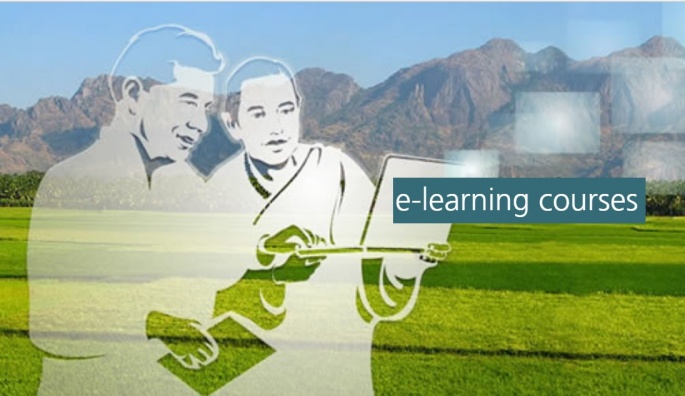From the AGRIS & AGORA Workshop in Malawi on enhancing accessibility and visibility of scientific publications in sub-Saharan Africa



Photo: AGRIS & AGORA Workshop, 1-2 November 2018, in Lilongwe, Malawi
Food and Agriculture Organization (FAO) of the UN is working with several partners to facilitate awareness, foster capacity development activities and make agriculture and nutrition data available, accessible and usable to contribute to enhanced food security and better nutrition in Africa. |
On 1-2 November 2018, FAO organized a regional Malawi AGRIS & AGORA WORKSHOP on enhancing accessibility and visibility of scientific publications in sub-Saharan Africa by using AGRIS and AGORA (both coordinated by FAO).
Malawi is among twelve pilot countries participating in the new Research4Life programme: DAR (Digital Access to Research)* this year, with Burkina Faso, Liberia, Mozambique, Rwanda, Senegal, UR Tanzania, Uganda and others.
The workshop was organized with the collaboration of the Information Training and Outreach Centre for Africa (ITOCA), which has been working with FAO to encourage more African data providers (journal publishers, aggregators, research and academic institutions) to share content with AGRIS and AGORA and make the best use of it.
The AGRIS & AGORA landmark event was attended by twenty participants (representing institutions from eight countries from sub-Saharan Africa) who discussed how the world shares, accesses and uses research content on the internet, how it has changed through the open science movement and how accessibility and visibility of scientific publications can be enhanced by using:
the International System for Agricultural Science and Technology | AGRIS offers more than 9.5 million links to information produced by over 350 data providers from more than 140 countries. While AGRIS is predominantly a bibliographic database which also provides full-text links to around 2 million of its records. |
Access to Global Online Research in Agriculture | AGORA is one of the five programmes making up Research4Life. The AGORA content portal provides free or low cost access to up to 13,700 peer-reviewed journals and 26,500 e- books (in agriculture and related sciences) to more than 3,400 institutions from more than 115 eligible countries |
The panellists discussed how to apply different techniques to provide and collect data in AGRIS from different data providers, group and analyse AGRIS and AGORA resources per subject and how to do this at high speed. They also highlighted how the digital approach in searching information in AGRIS and AGORA enables better informed research and evidence-based policy making.
OUTCOMES & LESSONS LEARNT
- Enhanced skills among researchers, librarians and lecturers on accessing and using scientific resources through AGRIS, AGORA and Research4Life;
- Specific suggestions on Capacity Development needed to improve the use of AGRIS;
- Enhanced awareness on new Digital Access to Research (DAR) programme;
- Enhanced awareness on possibilities for data to be provided from SADC region institutions to AGRIS;
- AGRIS SADC Consultative Group established.
In particular, the following recommendations were reached:
I. How to improve accessibility to external sources and visibility of internal scientific publications in institutions, using AGRIS:
Advocacy and awareness on AGRIS | Formulate policies governing institutional repositories |
Provision of more full-text and Digital Object Identifier(DOI) | AGRIS to provide statistics on institutional contributions |
Institutional websites to provide a link to AGRIS | Information literacy training and helping researchers deposit their research outputs in institutional repositories |
To sign Memorandum of Understanding (MoU) between AGRIS and the institution | Assigning a member of the institution to be responsible for AGRIS; having AGRIS champions in countries |
II. Capacity Development needs(among other issues):
Training support: Human Resources, financial resources and material | Facilitators from ITOCA, FAO to push AGRIS & AGORA trainings |
More awareness about extracting metadata in the publication | Expertise in submitting data & metadata to AGRIS |
Need for sustainable Iinfrastructure (server and computers), improved internet access | Repository establishment and management
|
* The United Nations Technology Bank for the Least Developed Countries (LDS) & Digital Access to Research (DAR): The Technology Bank for the LDCs is an organ of the UNGA. The Technology Bank through DAR joins the Research4Life partnership as a new type of programme, focusing on the particular needs of the LDCs. The Technology Bank will build on what Research4 Life (R4L) has already accomplished regarding online access to the world’s high quality published scientific and technical information.
.jpg)
Related:
- Learn more about AGRIS and join AGRIS mailing list!
- Learn more about AGORA and join AGORA mailing list!
- AGORA: Fundamentals of Information Literacy and Access to Global Online Research in Agriculture FREE ONLINE COURSE
- Research4Life TRAINING Materials : Be an advocate for the quality research in agriculture, health, environment, law, development and innovation
- Meaningful Bibliographic Metadata (M2B): Recommendations of a set of metadata properties and encoding vocabularies
- Ambitious Goals Require Useful Tools: AGRIS & AGORA upcoming Workshop in Malawi, November 2018 (1-3 November, Malawi)
- From Workshop on AGORA: Access to Global Online Information in Agricultural Research (13-14 June 2018, El Salvador)
- AGORA National Training Workshop Bangladesh (2-3 April 2018, Bangladesh)
- From AGORA Workshop in Nepal (29 -30 March, 2018, Nepal)
- From Workshop on AGORA: Global Access to Online Information in Agricultural Research (6 March 2018, Egypt)
- Exploring Access to Videos for Extension in Malawi
- Reviewing the research data sharing landscape (recorded webinar, SPRINGER NATURE)
.jpg)
Follow @AIMS_Community on Twitter... And, thanks again for your interest !

